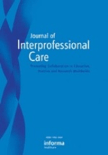
Journal of Interprofessional Care
Scope & Guideline
Advancing collaboration for better healthcare.
Introduction
Aims and Scopes
- Interprofessional Education (IPE):
The journal emphasizes studies related to IPE, exploring how collaborative educational experiences among health professions students can enhance their competencies and teamwork skills. - Collaborative Practice Models:
Research on various models of interprofessional collaboration in clinical settings is a core focus, aiming to identify best practices and outcomes associated with teamwork in healthcare. - Evaluation and Assessment Tools:
The development and validation of instruments to measure interprofessional competencies and collaborative behaviors are frequently discussed, providing valuable resources for educators and practitioners. - Patient-Centered Care:
A significant area of interest is how interprofessional teams can improve patient-centered care, emphasizing the importance of integrating patients' perspectives into collaborative practices. - Health Systems and Policy:
The journal addresses the implications of interprofessional collaboration on healthcare systems, including policy development and the organization of care delivery. - Qualitative and Quantitative Research Methodologies:
It encompasses a range of research methodologies, including qualitative studies that explore experiences and perceptions, as well as quantitative evaluations that assess outcomes of interprofessional initiatives.
Trending and Emerging
- Digital and Virtual Interprofessional Education:
There is a growing trend towards exploring digital and virtual models of interprofessional education, driven by the need for flexibility and accessibility in training. - Integration of Social Determinants of Health:
Research that investigates how interprofessional teams can address social determinants of health is increasingly prominent, highlighting the importance of holistic care. - Patient Engagement and Empowerment:
Emerging themes focus on strategies for enhancing patient engagement and empowerment within interprofessional teams, recognizing patients as active participants in their care. - Crisis Response and Resilience:
Studies examining interprofessional collaboration in response to crises, such as the COVID-19 pandemic, are on the rise, emphasizing the adaptability of healthcare teams. - Innovative Assessment Methods:
There is a trend towards developing innovative assessment methods for evaluating interprofessional competencies, including simulation-based and experiential learning approaches. - Transdisciplinary Approaches:
Emerging interest in transdisciplinary approaches to healthcare that incorporate diverse perspectives and knowledge systems is becoming more prevalent, fostering comprehensive care solutions.
Declining or Waning
- Traditional Educational Models:
Research focusing solely on traditional, uniprofessional educational models is less frequent, as the emphasis shifts towards integrated and collaborative approaches in training. - Static Competency Frameworks:
There is a noticeable decline in studies that rely on static competency frameworks without considering the dynamic nature of interprofessional teamwork and evolving healthcare needs. - Single-Discipline Perspectives:
Papers that emphasize single-discipline perspectives in healthcare are becoming less common, reflecting a broader understanding of the necessity for interprofessional approaches to address complex health issues. - General Attitudes Toward IPE:
Research that merely reports general attitudes toward interprofessional education without in-depth analysis of specific factors or outcomes is becoming less prevalent. - Focus on Hierarchical Structures:
Explorations of hierarchical structures in healthcare are waning as the discourse increasingly favors egalitarian and collaborative models of teamwork.
Similar Journals
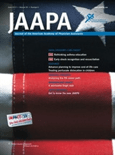
JAAPA-Journal of the American Academy of Physician Assistants
Empowering Physician Assistants Through Knowledge.JAAPA - Journal of the American Academy of Physician Assistants is a leading publication in the field of Physician Assistant studies, providing a vital platform for the dissemination of innovative research, clinical practice insights, and professional development information. Published by Lippincott Williams & Wilkins, this esteemed journal has an ISSN of 1547-1896 and an E-ISSN of 0893-7400, reflecting its commitment to scholarly excellence since its inception in 1989. With a robust impact factor that situates it in the Q3 category of miscellaneous Medicine and Q2 in Nurse Assisting, JAAPA stands as a pivotal resource for healthcare professionals, researchers, and students aiming to enhance their understanding and practice of physician assistance. Accessible through various academic platforms, JAAPA aims to bridge gaps in knowledge while fostering a community of informed practitioners, thus contributing meaningfully to the evolving landscape of healthcare delivery in the United States and beyond.
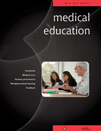
MEDICAL EDUCATION
Fostering Innovation in Medical Training and ResearchMEDICAL EDUCATION, published by Wiley, stands as a leading journal in the fields of education and medical training, holding a prestigious Q1 ranking in both the Education and Medicine (miscellaneous) categories for 2023. With an impressive impact illustrated by its 94th percentile ranking in Social Sciences Education, this journal has been pivotal in advancing research and discourse since its inception in 1966. Dedicated to enhancing the quality of medical education through scholarly articles, innovative methodologies, and evidence-based practices, MEDICAL EDUCATION provides a vital platform for educators, researchers, and practitioners. Although it does not offer open access, its comprehensive reviews and studies are invaluable resources for those committed to developing effective educational practices in the medical field. This journal is instrumental in shaping the future of healthcare education and fostering knowledge exchange among professionals.
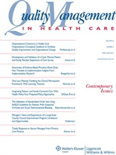
Quality Management in Health Care
Advancing quality for better patient outcomes.Quality Management in Health Care is a revered peer-reviewed journal published by Lippincott Williams & Wilkins, dedicated to advancing the understanding and implementation of quality management principles within the healthcare sector. With an ISSN of 1063-8628 and E-ISSN 1550-5154, this journal has established its reputation through the dissemination of rigorous research and innovative practices that address critical issues in care planning, health policy, and leadership management. The journal is ranked in the Q3 quartile across multiple categories, including Care Planning and Health Policy, demonstrating its significance in the evolving landscape of health management. Although it does not currently offer Open Access options, its blend of theoretical and practical insights makes it an essential resource for researchers, healthcare professionals, and students keen on enhancing quality and effectiveness in health services. This journal continues to play a vital role in shaping best practices and fostering a culture of quality excellence in healthcare, aligning with its objective to refine organizational practices and improve patient outcomes.
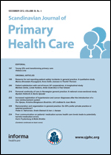
SCANDINAVIAN JOURNAL OF PRIMARY HEALTH CARE
Elevating research in public health and primary care.Scandinavian Journal of Primary Health Care, published by Taylor & Francis Ltd, is a pivotal open-access journal dedicated to advancing the fields of public health and primary care. With its ISSN 0281-3432 and E-ISSN 1502-7724, this journal has made informatics more accessible since its transition to open access in 2014, allowing broader dissemination of knowledge in these vital areas. Covering a wide array of topics, it offers researchers and practitioners a platform to share and discuss original research, systematic reviews, and case studies from 1983 through to 2024. The journal boasts a noteworthy impact factor and holds a Q2 ranking in Public Health, Environmental and Occupational Health, categorized among the top quartiles in its field. With a Scopus rank of #318/665 (52nd percentile), it stands out as a significant resource for stakeholders in the healthcare community. The Scandinavian Journal of Primary Health Care serves not only as a repository of valuable data and findings but also as a catalyst for discussions that promote improved health outcomes across populations.
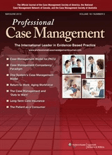
Professional Case Management
Navigating the complexities of healthcare with expert case management.Professional Case Management, an esteemed journal published by Lippincott Williams & Wilkins, serves as a vital resource for researchers, practitioners, and students in the multifaceted fields of nursing and healthcare management. With an ISSN of 1932-8087 and an E-ISSN of 1932-8095, this journal has been at the forefront of disseminating significant findings since its inception in 2007. It covers essential topics including Assessment and Diagnosis, Care Planning, Health Policy, and Leadership and Management, holding a respectable position in the Q3 category quartiles of these areas in 2023. Although not open access, the journal boasts a dedicated readership and provides a platform for contemporary research and innovative practices, evidenced by its competitive Scopus rankings. With objectives aimed at advancing the field and enhancing professional case management practice, Professional Case Management is an indispensable tool for those committed to improving patient outcomes and shaping healthcare policies in the United States and beyond.

Journal of Chiropractic Education
Advancing chiropractic education through rigorous scholarship.Welcome to the Journal of Chiropractic Education, a pivotal academic platform dedicated to advancing the field of chiropractic education and practice. Published by BRIGHTHALL & ALLEN PRESS PUBL SERVICES, this journal boasts an ISSN of 1042-5055 and an E-ISSN of 2374-250X, ensuring a broad accessibility for researchers, educators, and healthcare professionals. With a distinguished ranking in the third quartile within the chiropractic category in 2023, and a notable position as the 5th in Scopus rankings for Health Professions in Chiropractics, the journal serves as a vital resource for innovative research and comprehensive reviews. Spanning a converged period from 2017 to 2023, it emphasizes the importance of evidence-based practices and educational methodologies that enhance chiropractic training. Although the journal is not openly accessible, it continues to strive towards fostering an engaged academic community dedicated to the growth and evolution of chiropractic education. Join us as we explore the latest findings, share insights, and elevate the standards of chiropractic practice through rigorous scholarship.

BMC Primary Care
Advancing the Future of Primary Care ResearchBMC Primary Care is a leading peer-reviewed journal published by BMC that provides a vital platform for the dissemination of research and developments in the field of primary care. Established in 2022 as an open access journal, it allows for greater accessibility and visibility of research findings. Operating from the United Kingdom, BMC Primary Care has rapidly assumed an esteemed position within the academic community, currently ranked in the Q1 category for both Family Practice and Medicine (miscellaneous) based on 2023 metrics. With a Scopus rank of #9 out of 56 in Family Practice, positioned in the 84th percentile, this journal serves as an essential resource for researchers, healthcare practitioners, and students seeking to enhance their understanding of primary care dynamics. Through a commitment to high-quality research, BMC Primary Care aims to foster innovation and effective practices that ultimately improve patient care and health outcomes.
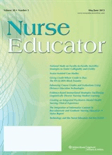
Nurse Educator
Transforming Nursing Practice Through Educator Expertise.Nurse Educator, published by Lippincott Williams & Wilkins, serves as a pivotal resource in the field of nursing education and practice. With an ISSN of 0363-3624 and an E-ISSN of 1538-9855, this esteemed journal has been contributing to the development of nursing professionals since 1976 and is recognized for its impactful articles, reflected in its 2023 Q2 category rankings across various nursing and educational domains. Nestled within the competitive landscape of academic publishing in the United States, its substantial Scopus ranking underscores its significance, particularly in Nursing Fundamentals and Skills (Rank #7/15) and general nursing fields (Rank #52/139). The journal's scope encompasses essential topics pertinent to nurse educators, including pedagogy, clinical practice, and exam preparation strategies, ultimately aiming to enhance nursing education and improve patient care outcomes. By providing an engaging platform for innovative research and best practices, Nurse Educator stands as an essential resource for researchers, educators, and students committed to advancing the nursing profession.
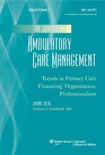
JOURNAL OF AMBULATORY CARE MANAGEMENT
Empowering professionals in ambulatory care management.JOURNAL OF AMBULATORY CARE MANAGEMENT, published by Lippincott Williams & Wilkins, is a leading peer-reviewed journal dedicated to advancing research and practice in the field of health policy, with a specific focus on ambulatory care management. Since its inception in 1978, this journal has served as a critical platform for disseminating innovative studies, insights, and methodologies that inform policy makers, healthcare professionals, and academic researchers alike. By maintaining an impressive ranking within the Q3 category in Health Policy and a Scopus rank of 148 out of 310, it underscores the journal's growing influence in shaping health policy discussions and decisions. The journal operates on a traditional subscription model, ensuring a high-quality review process while remaining accessible to those wishing to subscribe. With an ongoing commitment to excellence, the JOURNAL OF AMBULATORY CARE MANAGEMENT is essential for anyone involved in improving outcomes in ambulatory care settings and influencing health policy reforms, making it a must-read for researchers, practitioners, and students aiming to stay at the forefront of healthcare innovation.
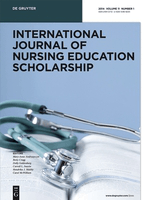
International Journal of Nursing Education Scholarship
Unlocking potential in nursing education through scholarship.International Journal of Nursing Education Scholarship is a crucial academic platform dedicated to advancing the field of nursing education through rigorous research and scholarship. Published by WALTER DE GRUYTER GMBH in Germany, this journal serves as a key resource for researchers, educators, and practitioners in nursing and related educational fields. With an impressive impact factor and a strong Scopus ranking, notably Rank #44 in General Nursing, the journal occupies a respected position within the Q2 category in both the Education and Nursing sectors. Its open access policy enhances the dissemination of critical findings, facilitating broader access to high-quality nursing education research. Spanning from 2003 to 2025, this publication is committed to fostering innovation and excellence in nursing education, promoting evidence-based practices that ultimately benefit healthcare systems worldwide. As a vital resource for academia and practice, International Journal of Nursing Education Scholarship continuously encourages the discourse on best practices and emerging trends in nursing education.